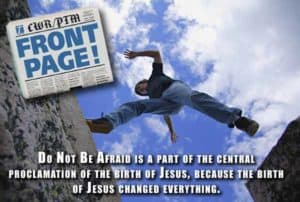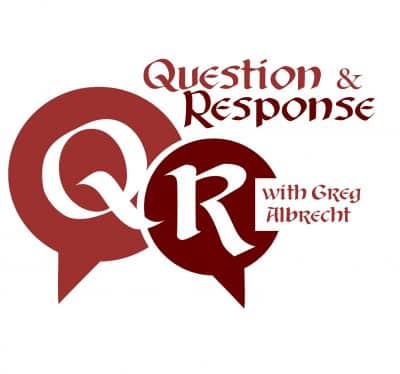Do Not Be Afraid – Greg Albrecht
The time and culture of Jesus’ birth was not unlike the world in which we live today. For that matter, it was just like any generation or era in history. The specific people, land and culture to which Jesus came was a world permeated with fear at almost every level. The Jews were an occupied people. They suffered under grinding poverty and heavy taxation. There was a huge gap between the rich and the poor. Life expectancy, particularly among the poor, is estimated to have been in the mid-30s to early-40s. Fear is a part of what it means to be human. It’s a common and normal emotional reaction.
• We have fears that we will live so long that our money will expire before we do.
• We have fears that we will die and be unable to take care of our family.
• We have fears that we will be unemployed and our family will suffer.
• We have fears that we, or someone we love, will be a victim of crime.
• We fear this world, with its hatred and terrorism, with its warfare and violence.
• We fear diseases—we fear the announcement of a terminal disease in our lives and that of our loved ones.
• We fear that those we love will not love us in return.
• We fear getting old and lonely.
• We fear the dark places of this world—and there are many of them.
• And of course we fear death—the final enemy.As Luke begins the story of the birth, life, death and resurrection of Jesus we are told not to be afraid. Do Not Be Afraid begins as a comforting message before Jesus’ birth and continues with the events surrounding his birth. As Matthew records, the Gospels end with an angel saying to the women at the tomb, after Jesus was raised, Do Not Be Afraid…he is not here, he is risen (Matthew 28:5-6, my emphasis).
CLICK HERE for the rest of the article











 Plain Truth Ministries | Box 300 | Pasadena, CA 91129-0300
Plain Truth Ministries | Box 300 | Pasadena, CA 91129-0300

